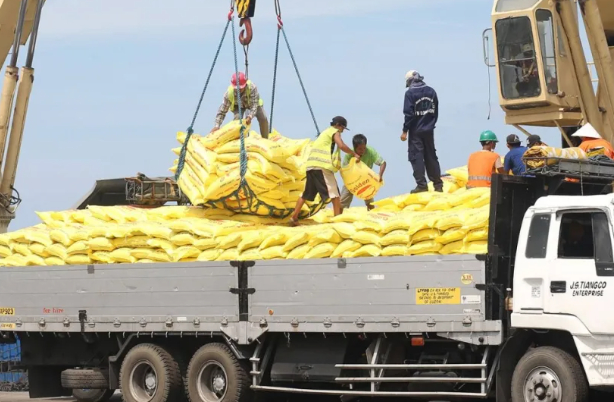May 24, 2025 | 16:20 GMT +7
May 24, 2025 | 16:20 GMT +7
Hotline: 0913.378.918
May 24, 2025 | 16:20 GMT +7
Hotline: 0913.378.918

FARMERS' group Samahang Industriya ng Agrikultura (Sinag) has appealed to the government to halt rice importation as local harvest will start in October while total imports of the staple food have reached 2.52 metric tons in the first three quarters of 2022. Sinag President Rosendo So said that farmers will suffer further losses if the millers continue to refuse to buy palay in bulk.
ALARMING reports from Central Luzon — the largest rice-growing region of the country — indicate that rice farmers are being paid far below the mandated minimum price for palay (unmilled rice), and may soon take matters into their own hands and cause a rice shortage in order to drive up prices and protect their livelihoods. The Department of Agriculture (DA), which seemed to be unaware of this disturbing development until asked about it by the media, must act immediately to avert a crisis.
In a radio interview, Sonny Sioson, head of the Central Luzon Farmers' Cooperative, said that rice farmers in the region were only being paid P13 per kilogram for palay, which is P6 per kg below the National Food Authority-mandated minimum price of P19 per kg.
Central Luzon, or Region 3, includes the provinces of Nueva Ecija, Aurora, Bataan, Bulacan, Pampanga, Tarlac and Zambales, and has the highest rice output of any region in the country, producing more than 770,000 metric tons in the first quarter of this year. Almost one-third of that amount comes from Nueva Ecija, which is the country's leading province for rice production.
Sioson said that farmers need a price of P18 to P20 per kg to sustain themselves, and that the current low prices were already having a negative impact on productivity. Some farmers have chosen not to plant — Sioson said he has also decided not to plant his own 4 hectares until the situation stabilizes — and rice mills have also slowed or stopped operations.
The cooperative chief suggested that if the government does not soon address the low prices, his group would urge farmers across the country to cut the amount of land under cultivation by half, from 3 million hectares to 1.5 million hectares, in order to reduce rice supply and drive up prices.
When asked about the brewing crisis by our reporter, an official of the DA responded only that the issue would be referred to the office concerned within the DA.
It is worth noting that at the same time the news of the farmgate price collapse was emerging, the DA's daily report on retail rice prices indicated that they are still higher than normal, ranging from P35 to P49 per kg, depending on the variety.
We find it frankly astonishing that the DA, which evidently has the wherewithal and resources to keep daily tabs on retail rice prices, has no idea what is happening at the other end of the supply chain. It has allowed a crisis to form to the extent that rice production is already falling, and farmers are threatening a literal strike if the situation is not improved. There is bad faith or incompetence somewhere, and this administration, which has already displayed a fondness for saying "heads will roll" when it comes to agricultural supply issues, needs to find out where and mete out appropriate consequences.
It should not, however, do that before or as an alternative to actually addressing the problem of lower than acceptable farmgate prices. Along these lines, Sioson made a suggestion worth considering. Instead of the one-time, P5,000 per farmer cash assistance being offered by the government in line with the Rice Tariffication Law, he said, the government should raise the minimum buying price for palay to P23 per kg.
"The P5,000 is not the solution to address the plight of the farmers," he said, and he is correct. That amount might — or might not — be enough for a small farmer to manage planting for a season, but it is not a sustainable solution. Raising the minimum buying price — we will take the farmer's word for it that P23 is a reasonable level — and giving the NFA more scope to buy palay, both to keep the farmers in business and ensure sufficient rice stocks for the country, on the other hand, is what the current alarming circumstances demand.
Once that is done, and it should be done immediately, the government can then focus on making whatever changes are necessary — whether to personnel, processes, or both — to prevent a recurrence.
(Manilatimes)

(VAN) Alt Carbon has raised $12 million in a seed round as it plans to scale its carbon dioxide removal work in the South Asian nation.

(VAN) Attempts to bring down the price of the Japanese staple have had little effect amid a cost-of-living crisis.

(VAN) Fourth most important food crop in peril as Latin America and Caribbean suffer from slow-onset climate disaster.

(VAN) Shifting market dynamics and the noise around new legislation has propelled Trouw Nutrition’s research around early life nutrition in poultry. Today, it continues to be a key area of research.

(VAN) India is concerned about its food security and the livelihoods of its farmers if more US food imports are allowed.

(VAN) FAO's Director-General emphasises the need to work together to transform agrifood systems.

(VAN) Europe is facing its worst outbreak of foot-and-mouth since the start of the century.